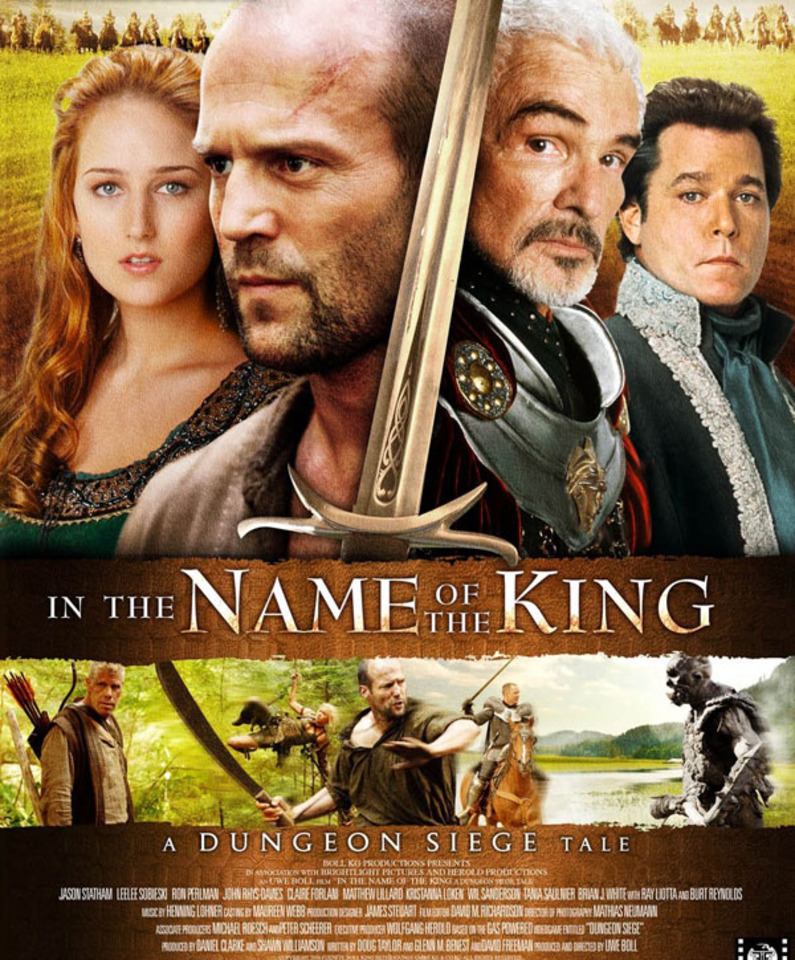Rumor: Uwe Boll's career cut short by new German tax law?
Source: Various sites, most citing an entry on Wikipedia, are tolling a death knell for director Uwe Boll's career. The official story: See below. What we heard: According to the Wikipedia entry, people invested in Boll's films to use the losses as a tax write off, and changes to German tax law...
Source: Various sites, most citing an entry on Wikipedia, are tolling a death knell for director Uwe Boll's career.
The official story: See below. 
What we heard: According to the Wikipedia entry, people invested in Boll's films to use the losses as a tax write off, and changes to German tax law set to take effect in 2006 will prevent that from happening. Boll has become somewhat notorious of late for scooping up the film rights to a number of games and quickly turning around box office turkeys with them. So far the director has struck out with adaptations of House of the Dead and Alone in the Dark. An early review of BloodRayne was not kind (nor was Boll's apparent retort), and we've still got adaptations of Dungeon Siege, Far Cry, Hunter: The Reckoning, Postal, and Fear Effect in the hopper.
Right off the bat, we can tell you that the bit about German tax law changing is not bogus. For a look at the current tax law and how mainstream movie studios take advantage of it for any kind of production (not just guaranteed bombs), check out this April article published in the Web-based magazine Slate. In short, Germans who invest in German-owned film ventures can take a tax deduction on their money whether the film has gone into production or not. This gets taken advantage of when studios play a shell game with the ownership of their films, selling it to German owners who will write off their investment before the studio buys it back for less money than the film was sold for in the first place. The German investors get their tax write-off, the studio defrays some of the movie's cost, and both sides walk away happy.
However, this is far from the only tax loophole movie studios take advantage of. According to the Slate article, Paramount managed to make Tomb Raider, a film with an on-paper budget of $94 million, for under $7 million. The German tax law loophole only accounted for a little more than $10 million, while a similar loophole in British law saved another $12 million. The real windfall for Paramount came from selling distribution rights to the movie to six countries where the Tomb Raider property was especially popular with teenage boys. Those deals in Japan, Britain, France, Germany, Italy, and Spain alone brought in $65 million.
E-mails sent to Boll from GameSpot seeking comment about how he expected the change in German tax law to impact his ability to raise capital for his films went unreturned. However, it seems unlikely to end his career, as some have predicted. First and foremost, a number of countries have similar tax breaks to encourage local film production that could be exploited to secure funding. Second, if Tomb Raider is anything to go by, it's the distribution rights that bring in the big bucks. Boll's not dealing with properties of that size, but he is targeting a number of dormant and second-tier gaming franchises that can likely draw enough interest from the gaming crowd that it shouldn't be hard to find distributors willing to pay for them. He also sprinkles the films with some surprisingly well-known stars who just aren't at their career peaks, further adding to international distributor appeal.
A more cynical site might even suggest that Boll is a business genius, intentionally cultivating an Ed Wood-like cinematic car-wreck culture around his films that makes them must-endure experiences for gamers. The licenses and fading star power he picks up will make their money back in distribution rights and ticket sales from morbidly curious gamers, and whatever tax law loopholes he can take advantage of along the way are just icing on a rotten, rotten cake. On the other hand, why would a steely-eyed business genius feel the need to get behind the camera for every one of his films and subject himself to the never-ending parade of critical evisceration? You have to figure that on some level, the guy just loves making movies.
Bogus or not bogus?: Bogus. Anyone resourceful enough to get a BloodRayne movie made won't be stopped by a simple tax code amendment. Or anything short of silver bullets and holy water, we suspect.
Got a news tip or want to contact us directly? Email news@gamespot.com
Join the conversation